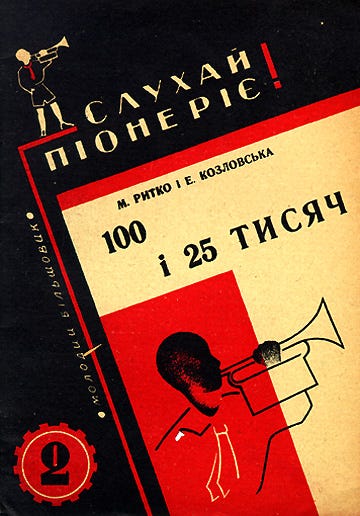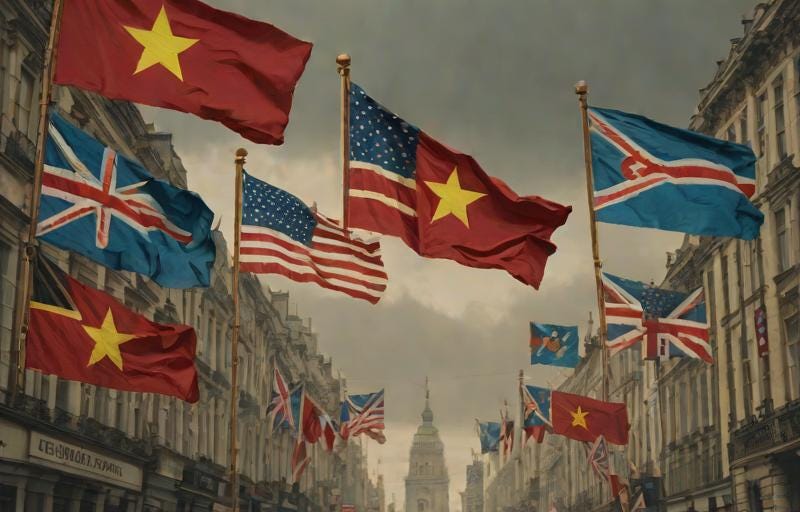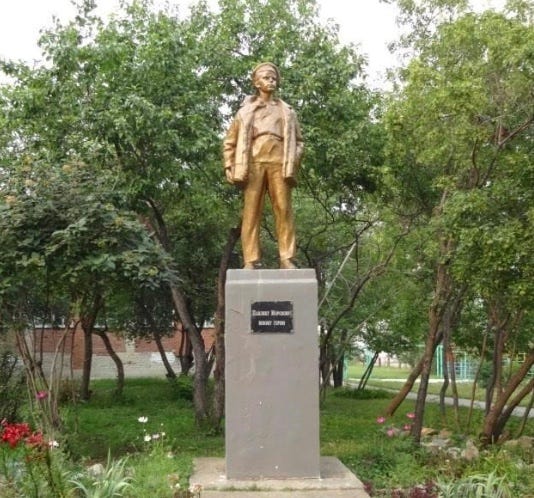Home Betrayal
"At what point shall we expect the approach of danger?"
Nothing makes me feel farther from home than election season. Expat status offers a remove, lonely and arrogant, and if I’m not careful, I begin to feel like a minor god, or Nick Carraway, watching political parties eat themselves, watching gunshots in other people’s pools.
It borders on irresponsible, being a long-term expat. It’s easy to roll eyes, wring hands, feel pity for the over-commercialed and under-insured. Strip sentences of any personal pronouns.
We moved to London for two years, a decade ago. The first few years here, I listened loyally to my former local NPR station, WAMU, a nostalgic umbilical cord running through the radio waves and over the Atlantic’s waves from Mother DC. A colleague, also an American but fully replanted on British soil long before I arrived, told me NPR just felt so parochial. And I thought, “what a snob.” But at some point—I can’t put my finger on the moment—I stopped listening to NPR and turned to the BBC and Channel 4 for my listening interest.
During election season, though, I plug back in. The BBC’s soundbites never satiate my need for Iowa, New Hampshire, Super Tuesday details.
And as I listen, even in my interest, I feel that remove from my Americanness. But I’m not British, either. At most, maybe I’m a Londoner. More -er than -an or -ish, I fill in qualities of each country, wishing one could borrow the best from the other. I suppose this would be the danger for me of polyamory, wanting to cobble together the best qualities, becoming acutely aware of the flaws of one while in bed with the other. An assembled utopia that would likely become Frankenstein’s monster.
I know nationality isn’t pick-a-mix and straddling isn’t sustainable, but it’s hard not to imagine the bothness, its possibility.
***
The first time I moved away from America, I was seven and the country was deep in its ‘80s local news horrors: poisoned Halloween candy; the lurking strangulation risk of a Fisher Price xylophone cord. Parents were pulling their children away from watching TV dinners warm in the microwave, the escalating panic of a nuclear holocaust wrapping its tentacles around America’s suburban fears.
But my parents moved us across ocean and continent to a Cold War embassy that had been bombarded with 2.5 gigahertz microwaves, which is more like being inside a microwave than waiting outside it for your popcorn to pop. Until I was pregnant 12 years ago, the joke in my family was: how many extra digits will your children have?
All the small 7 o’clock terrors broadcast in America did little to dispel what the country looked like in relief of the Soviet Union. Arriving in Moscow, I looked back at America as a time and place lush with glitter, tan skin, knotty pine basements, people throwing McDonald's wrappers out the half open car windows with a casual wrist flick. A place of color and warmth and verve next to Moscow’s monochromatic cold gray.
When we returned for summer visits, I wanted to wrap myself in everything American. Even at age nine, I could smell my own sallowness. The supermarket cereal aisle left me paralyzed in its possibility. But when we moved back to the United States in 1989, I started to feel a lack where I had once seen abundance and tried to shed my perceived Americanness: I gave up fast food for years; rejected any affinity for sports teams; never got cable television; despised the notion of the pledge of allegiance; refused even to play Monopoly. I untethered from place.
It’s the same pattern in adulthood. Our first week home in the U.S. for summer break, parking spots are plentiful, fellow walkers are friendly, Target is Mecca, everything feels built for my enjoyment. But by week three, the ease of life takes a menacing shape. The commercial intent behind everything; the wariness I feel in big spaces, checking out disgruntled people like a skittish horse; the fear of one of us getting sick, knowing what travel insurance won’t cover. Even the cereal aisle feels like a diabetic deception.
And the obsession we Americans have with flags starts to feel a little in my face.
While I missed America in Moscow, the Soviet Union taught me a wariness toward patriotism. More than a wariness, it planted a fear in me. And the root of the fear lived across the street from my bedroom window on the western end of the U.S. Embassy.
The entire embassy compound was a fortress, surrounded by a 10-foot brick wall and beyond the wall was a barren field and across from the field was a park and in the center of the park was a statue of a boy.
All paths in Park Presnenskiy seemed to lead to Pavlik Morozov, its axis. And I couldn’t resist seeking him out. The terror his story invoked was an electric bolt, from throat to pelvis.
Pavlik, the subject of countless poems, songs, stories, even an opera, was a model patriot. His martyrdom, the gold bar standard for generations of children who followed. His school became a shrine to which field trips of students made pilgrimage. I stood under that statue, looking up at Pavlik in gold leaf, shoulders thrown back, jacket open, cap tipped backward, brows furrowed, and I shivered.
When he was 13, Pavlik, from a rural village in central Russia north of Kazakhstan, had overheard his father talking about forged documents he was selling to anti-soviets. Pavlik reported his father to the local authorities who sentenced his father to labor camp for a decade. A sentence that was soon changed to the death penalty.
Pavlik’s family was devastated and enraged. The story goes that later that year, Pavlik’s grandparents, uncle, and younger brother snuck up on Pavlik while he was picking berries and stabbed him to death amidst the blackberry bushes.
Pavlik’s family was rounded up and shot by firing squad.
The levels of disloyalty, the sequential horrors, celebrated in gold leaf, haunted me. At each stage, it felt impossible, impossibly wrong, to love a country more than a father, to kill a child in angry retribution, to celebrate the cause of a family’s slaughter. What kind of country inspired this in her people?
Only since the dissolution of the Soviet Union has it emerged that Pavlik’s story is myth. Pavlik was reborn yet again: revealed by scholars to be a young hooligan who smoked cigarettes and at age 12 was still in the first grade. Documents indicate now that Pavlik’s mother, angry at her husband for abandoning her and their children, coerced her son to inform authorities that his father had sold some illicit documents for travel.
And as for the berry bushes and the stabbing, there was a bloody knife discovered in a house. But as this was 1932, the time of Stalin’s collectivization of farms when millions of farmers subsequently died and the legal process was a fickle breeze, there was no real investigation.
The massive concrete letters erected in memoriam outside of Pavlik’s collective farm were crumbling within ten years of the fall of communism. And the only surviving photograph of the real Pavlik shows a malnourished child in a heap of other children, a far cry from the terrifying health and vigor embodied in the statue outside the embassy.

Pavlik’s story takes up an inordinate amount of my childhood mental space—like the Bermuda Triangle and the girls’ bathroom. And this week, reading Heather Cox Richardson’s newsletter from January 27, I was reminded of Pavlik again. She writes of Lincoln’s Lyseum speech, nothing of this year’s election or even America today, until the last line. But it’s there throughout her piece, and I fear Pavlik’s shadow is there, too.
“Lincoln saw trouble coming,” she writes, “but not from a foreign power, as other countries feared. The destruction of the United States, he warned, could come only from within. ‘If destruction be our lot,’ he said, ‘we must ourselves be its author and finisher.’”
And the next line Richardson quotes of Lincoln’s speech, a sluice of cold water: “‘As a nation of freemen, we must live through all time, or die by suicide.’”
Lincoln’s fears grew in response to men acting “on their passions, imposing their will on their neighbors through violence.”
The Soviet Union hobbled on, 60 years after Pavlik’s early death, until its implosion. But how can any country that puts loyalty to a madman before one’s own wellbeing, survive?
It’s a different route to betrayal, a different kind of killing. But both are rooted in strong men and a form of national suicide. The story of Pavlik’s family, a family killing themselves in rage and fear; the story of America, shooting itself apart from within. Citizens choosing to dismiss 91 criminal counts against a man, even as his rhetoric has stopped acknowledging them. Others marinating in a stay-rich shortsightedness that refuses to consider their grandchildren’s survival, in what’s left of the berry bushes.
Certainly loyalty’s dimensions are more complicated in adulthood, but distance makes a view simpler, and my view across the pond is closer than it’s ever been to my childhood view.
From my bedroom window in the American Embassy, I could see fireworks almost weekly. Fireworks were the USSR’s form of flags. They were loud, bright, spectacular. Distracting. But I’d never choose their pyrotechnic spectacle over the people beneath them. Later in his speech, Lincoln reassured the crowd, “I know the American People are much attached to their Government;—I know they would suffer much for its sake;—I know they would endure evils long and patiently, before they would ever think of exchanging it for another.”
And, watching the fireworks of this election from afar, I wonder if my distance is my betrayal.



Alissa, the idea of distance as betrayal is thought provoking. I’m closer than you, living here, yet about as distant from the madness as you can get. I think that makes me a traitor. Hmmmm. In the meantime, I’m sending you good energy from Idaho. :)
Such excellent writing as always. What a journey. Thank you